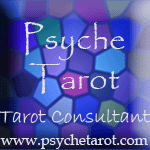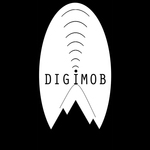Tarot and the myth of “bad cards”
By Psyche | January 13, 2008
My day job allows a certain amount of freedom when it comes to listening to music at work. Most people have headphones, and once upon a time the majority would have been listening to Pandora.com, but it’s been a while since they disallowed Canadian listening due to licensing constraints – a shame, because I found many new bands via their ingenuous Music Genome Project – music I then later bought, as with Napster in the days of yore. But I digress.
Sitting at my cubicle, work is where I listen to podcasts when my mp3 player starts to seem repetitive1. Late December and early January I was on vacation, and so, behind. I recently caught up and finally listened to the latest Tarot Connection episodes.
In episode 67, host Leisa ReFalo and guest Roger Tobin tackled the subject of “difficult cards” from a variety angles, specific “difficult” cards for the client and for the reader; cards which might seem scary for a client unfamiliar with their meaning (Death, the Devil and the Tower are common examples), and cards which are challenging for the reader to interpret, either because they’re still unclear on the meaning, or even simply because they don’t often turn up during a reading (we all have cards like this).
We’ll tackle the second part first: cards which are difficult for the reader to interpret. This seems to come down to experience and exposure more than anything else. A good exercise to overcome this might be to go through your deck and vocally give a brief interpretation of the card2. Where you have trouble, separate those cards from the deck to work with. Write down what you feel your trouble is with that card, and what it could mean both as a card and in relation to the difficulty you experience with it.
The understanding and depth of interpretation for any given card will change and grow naturally with experience in using the cards, and also with one’s magickal practice – especially in regards to specifically occult decks such as the Crowley-Harris Thoth tarot 3.
Now we come to the potentially tricky part: assuaging client’s fears about “negative” cards. Earlier, in [cref 56], we talked about providing information that was useful to the client and this applies here, especially. We don’t want to sugar-coat a card’s meaning, but we also don’t want to have the client feel we’re deliberately leaving something out.
For example, upon seeing the Death card come up in a reading, immediately rushing to say “Don’t worry! It doesn’t actually mean death!” can come across as disingenuous. Even if it is (usually) true, expressing enthusiastic concern for the card may come across as over-anxious, and this tends to alarm the client more than reassure. Better to calmly take it in turn, rather than leaping to defend the card, unless the client specifically mentions it, in which case a smile and a comment on its metaphoric gloss might be helpful.
On the whole though, I don’t think “bad cards” pose a serious problem for the reader when taken individually. Sure some cards are more welcome than other, but in context they may not actually refer to anything “bad”. As Leisa ReFalo pointed out in episode 67, even the Tower can be a welcome card when the client is actively seeking divorce.
Rather, it’s the collective interpretation of all the cards in a spread with negative connotations which lends problems in relaying the meaning to the client as this is far trickier to do. This takes us back to our earlier themes in [cref 56]. Reading for others is a huge responsibility, and while we want to provide useful information, it can be very difficult to convey when the message isn’t as victorious as the Six of Wands or as bright as the Sun.
Popularity: 2%
Footnotes:
- Again, music I typically burn from store-bought CDs. Take that, you RIAA bastards. [back]
- Doing this as a vocal exercise forces you to put into concrete words what you see in the cards, rather than merely intuiting the meaning. Both are useful, but when you’re reading for a client, they’re not going to be able to feel what you sense in the cards unless you vocalize it. [back]
- The history in Crowley’s The Book of Thoth might not be great, but the occult symbolism is quite complex and not made immediately obvious even after years of study and practice – it’s really something that has to be worked at. [back]
Related posts:
- Tarot and accuracy
- Tarot and sharing bad news
- Tarot parties
- Q&A: The etymology of tarot
- More poetry, hacking retrogrades, initiation and…Lost tarot cards?
Comments: Leave a comment » | Trackback
Category: Essays & Opinion,Magick
Save & Share: Del.icio.us Digg Facebook Reddit Stumble it! Twitter




